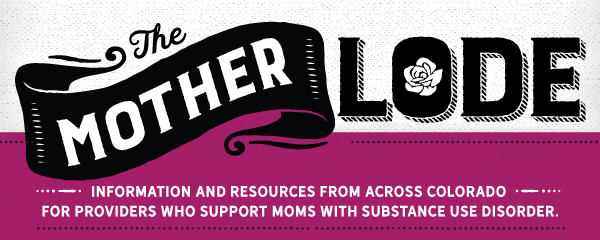Issue 13 - May 2024
This May, as we acknowledge Maternal Mental Health Month, we’re shining a light on the risks and long-term health impacts of trauma. Trauma is not necessarily the “event” that happens to a person, but rather the enduring impact that harmful events, circumstances and socio-political conditions can have on a person’s internal stress-response system. The way a person’s nervous system responds in the face of traumatic events is involuntary, often unconscious, and outside of a person’s control.
We’re also helping moms understand that trauma can be passed down from one generation of survivors to future generations. Sometimes called “intergenerational” or “multigenerational” trauma, it makes the process of healing and recovering from substance use disorder more complicated, which is why “whole person” care is so important.
In this newsletter, we introduce you to organizations that are providing trauma-informed care for moms and their families. We also introduce you to Rosita, whose story begins with childhood trauma and heals through an understanding of the root causes of her substance use disorder. And finally, we share a video featuring Vanessa, her mom, and her son to highlight how substance use disorder impacts families and how families can heal, together.
You can help us educate moms and families about the impacts of trauma and the role they play in developing substance use disorders. It’s our goal to help moms begin to understand that their use of substances is complex, and is often driven by unresolved pain and not a personal or moral failure.
Most of all, we want moms to know that support is available and recovery is possible. Please join us in sharing incredible stories of moms who moved through their trauma along their journeys of recovery. [View our social media toolkit](<This May, as we acknowledge Maternal Mental Health Month, we’re shining a light on the risks and long-term health impacts of trauma. Trauma is not necessarily the “event” that happens to a person, but rather the enduring impact that harmful events, circumstances and socio-political conditions can have on a person’s internal stress-response system. The way a person’s nervous system responds in the face of traumatic events is involuntary, often unconscious, and outside of a person’s control.
We’re also helping moms understand that trauma can be passed down from one generation of survivors to future generations. Sometimes called “intergenerational” or “multigenerational” trauma, it makes the process of healing and recovering from substance use disorder more complicated, which is why “whole person” care is so important.
In this newsletter, we introduce you to organizations that are providing trauma-informed care for moms and their families. We also introduce you to Rosita, whose story begins with childhood trauma and heals through an understanding of the root causes of her substance use disorder. And finally, we share a video featuring Vanessa, her mom, and her son to highlight how substance use disorder impacts families and how families can heal, together.
You can help us educate moms and families about the impacts of trauma and the role they play in developing substance use disorders. It’s our goal to help moms begin to understand that their use of substances is complex, and is often driven by unresolved pain and not a personal or moral failure.
Most of all, we want moms to know that support is available and recovery is possible. Please join us in sharing incredible stories of moms who moved through their trauma along their journeys of recovery. View our social media toolkit and share these posts to honor Maternal Mental Health Month.





















